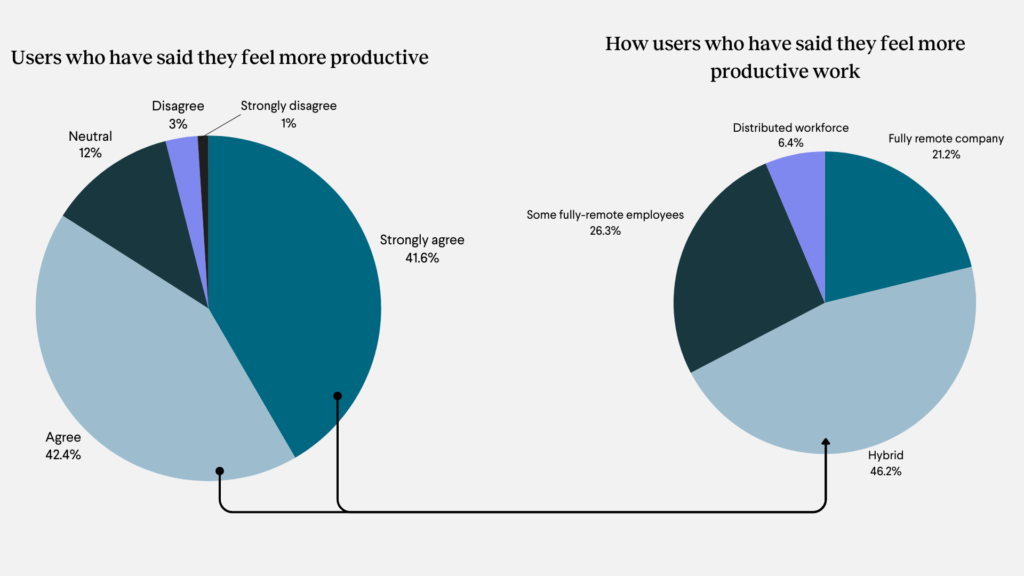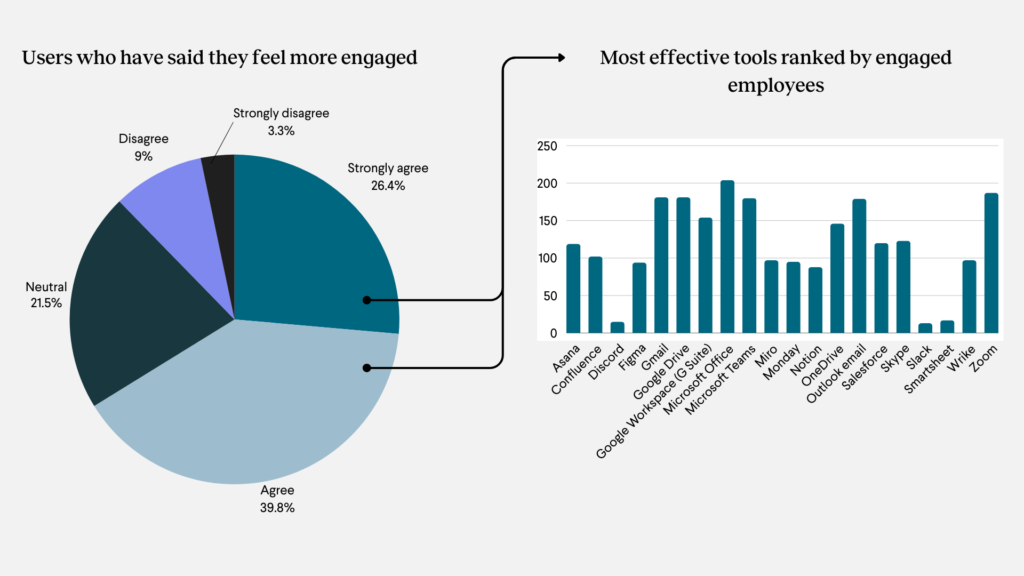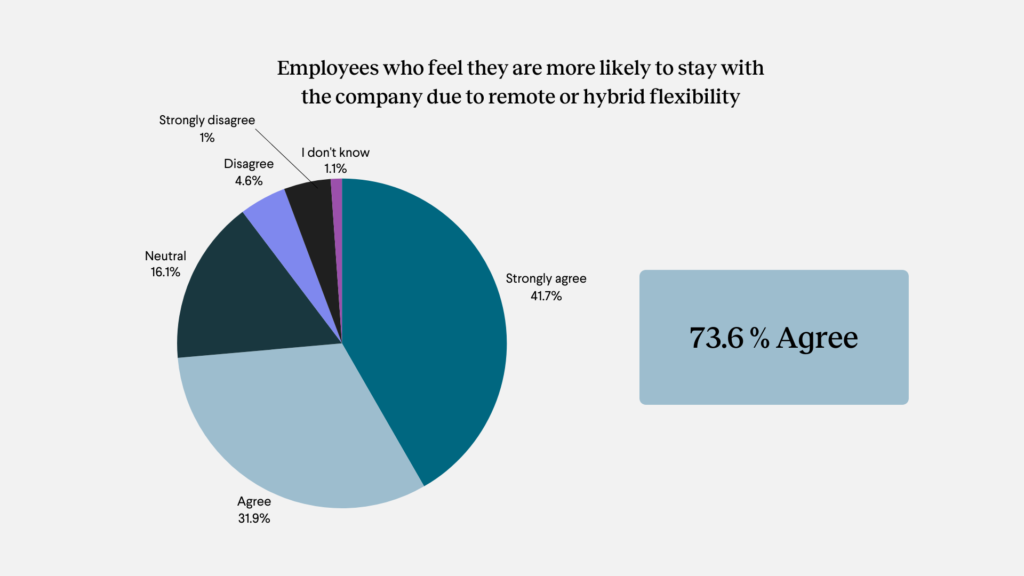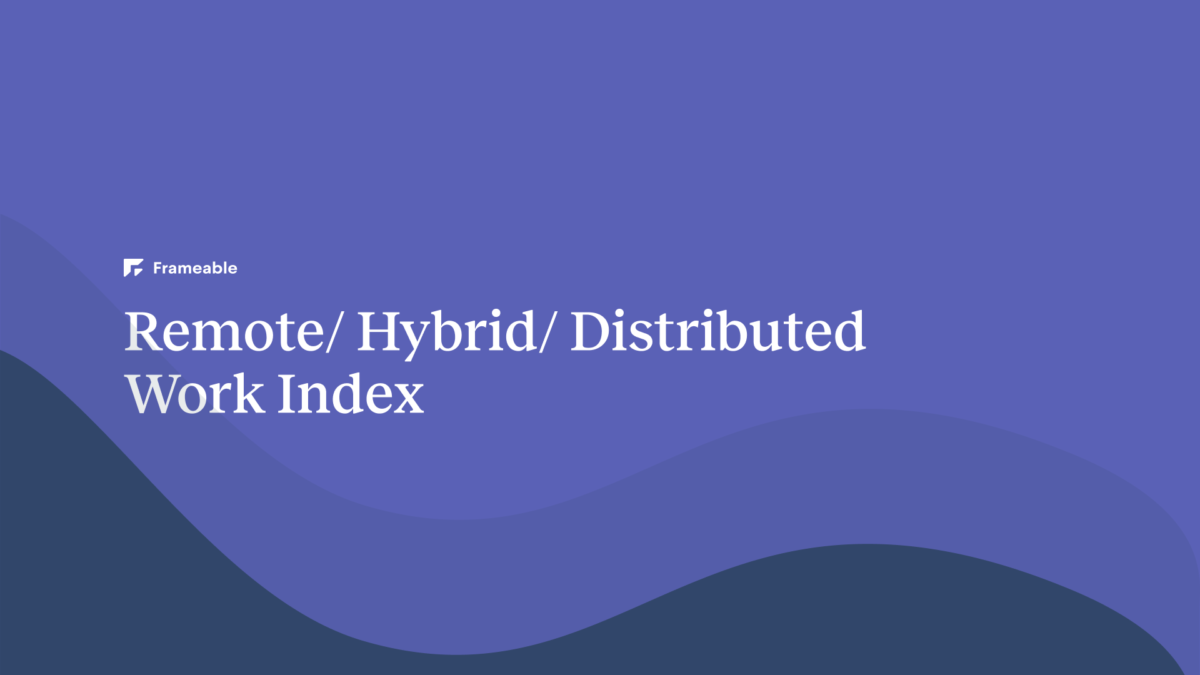As company leaders seek to deliver the most fulfilling workplace experiences, new research reinforces that remote, hybrid, and distributed arrangements present a clear competitive advantage.
Frameable’s first edition of The Remote/Hybrid/Distributed Work Index explores how remote and hybrid work arrangements affect employee well-being, productivity, and collaboration. We also examined how effective existing workplace technologies are in supporting distributed workplaces. Here are a few of the key takeaways.
Four Things We Learned About Distributed and Hybrid Work
Frameable surveyed U.S.-based workers who currently work in a remote, hybrid, or distributed team culture. The research, conducted in November of 2023, dispels several persistent myths about the modern hybrid and distributed workforce and provides actionable ways for leaders to improve their strategies.
Employees are More Engaged in Hybrid, Remote, and Distributed Workplaces
More than half of employees (66.2%) agree or strongly agree they feel more engaged when working remotely than from a company office. Only slightly over 12% of respondents disagreed. This suggests that some types of work still benefit from in-person collaboration—and that some companies need to work on being more intentional about inspiring engagement with their team. More on that later.
Remote and Hybrid Workers are More Productive
The majority of survey respondents (84%) said they feel more productive because of a flexible workplace model. Only 4% disagreed, and 12% felt neutral. The good news is these productivity benefits will likely increase as companies refine their technology stacks and implement tools and processes built for a remote-first model.

Microsoft Office Enables Engagement
Digging into which tools specifically are most effective in enabling engagement, employees ranked Microsoft Office as the No. 1 choice, followed by Gmail, Google Drive, Microsoft Teams, Outlook email, and Zoom. Of course, leaders should set clear guidelines around how to use all workplace tools to their fullest potential.

Workplace Flexibility Drives Retention
Adding to the productivity and engagement benefits, nearly three in four workers (73.6%) are more likely to stay with their company because of their workplace flexibility. This is likely in part due to benefits employees cited, such as having more flexibility to accommodate their lives, being more involved in their children’s daily routine, and addressing caregiving responsibilities.

Prepare for the Future of Work
The above findings are just a glimpse at the reasons why remote, hybrid, and distributed models present a competitive advantage for companies—but there are several challenges that leaders should prepare to overcome.
The full report provides advice on addressing some of the concerns workers raised in the research, including:
- Essential skills for managers of a distributed team
- Strategies to build and maintain trust in remote and hybrid settings
- Technology recommendations to power an effective and secure distributed team
Download the full Frameable Remote/Hybrid/Distributed Work Index today.

